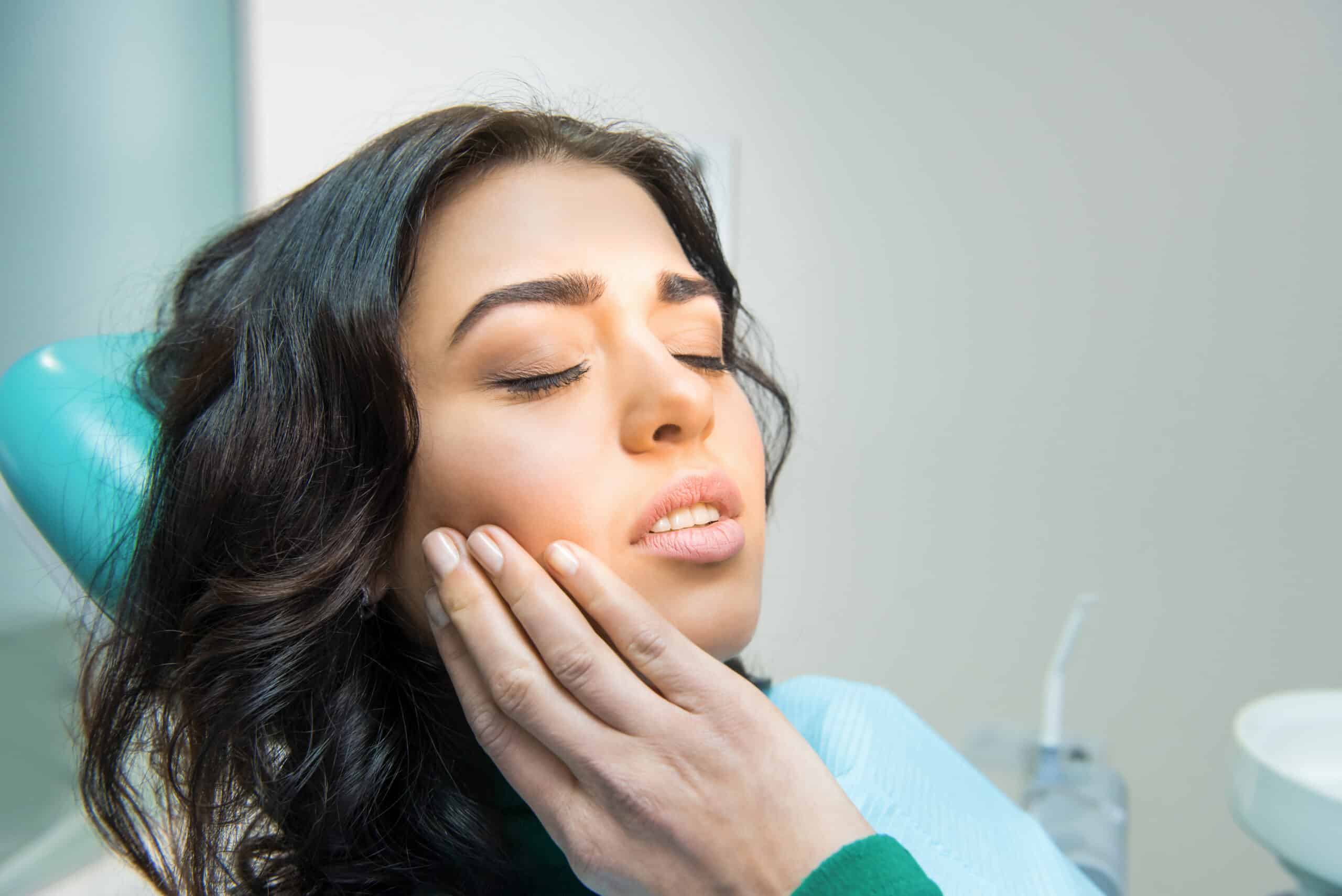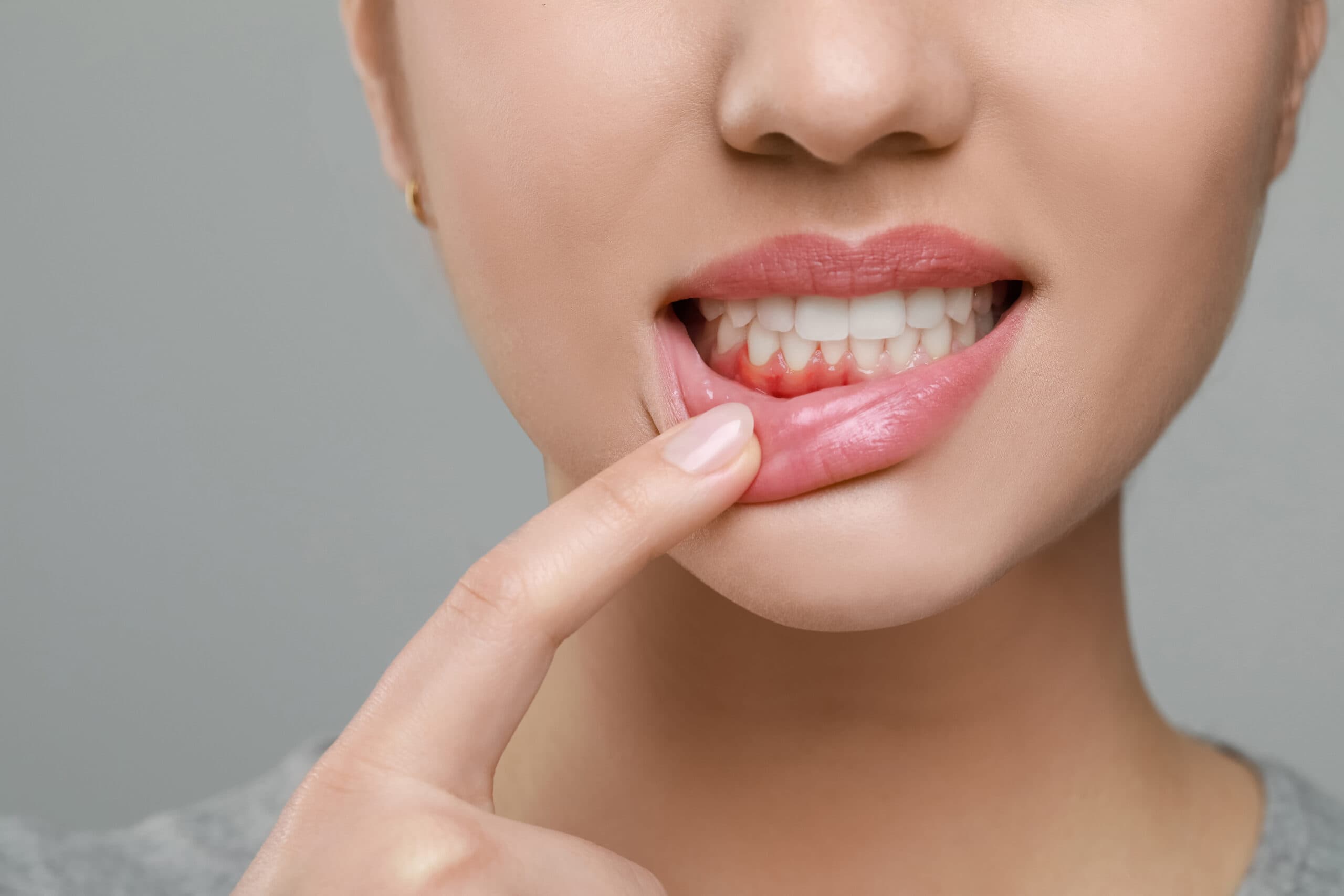Many people think maintaining oral health stops with brushing and flossing. Unfortunately, this is not always true. While poor dental hygiene is a leading cause of periodontal disease, many other risk factors are associated. For instance, did you know certain foods put you in danger of periodontal disease?
If you’ve been neglecting your oral health, it might be time to consider a healthier diet plan.
If severe, inflammation of the gums can lead to tissue loss.

What Is Periodontal Disease?
According to the Journal of American Dental Association, periodontal disease is an early stage of gum disease, also known as gingivitis. If severe, inflammation of the gums can lead to tissue loss. Symptoms include:
- Red, swollen gums that easily bleed (for example, when you brush or clean between your teeth).
- Gums that feel tender when touched.
- Constant bad breath.
- Unpleasant taste in the mouth.
- Pain when chewing.
- Gum recession.
- Loose teeth.
- Changes in the way your teeth fit together.
If you have any of these symptoms, talk to your dentist immediately.
If you’ve already lost bone around your teeth due to infection, periodontal disease is too advanced to reverse.
What Are the Stages of Periodontal Disease?
Healthy gums are bright pink, firm to touch, and don’t bleed or swell. Most people don’t experience pain with gum disease, especially in the early stages.
Knowing the warning signs is crucial. Here are four stages of gum disease:
- Gingivitis is the earliest phase and begins with red, puffy gums that may bleed when you brush or floss. However, if caught early, there’s no bone loss during this stage, allowing you to reverse with proper treatment.
- Mild periodontitis happens when the bacteria seeps beneath your gums, affecting the supporting bones. As a result, your gums may withdraw from your teeth, creating pockets around them. Bacteria and plaque are notorious for hiding in these pockets where your toothbrush and floss can’t reach to clean.
- Moderate periodontitis, especially if left untreated, allows bacteria to begin eroding the ligaments, soft tissues, and bones that hold your teeth in place. You’ll likely develop bad breath, pus (infection) around the gum line, and experience pain.
- Advanced periodontitis progresses bone loss, increasing the risk of your teeth loosening and eventually falling out.
If you’ve already lost bone around your teeth due to infection, periodontal disease is too advanced to reverse. However, it is manageable with proper treatment and diligent oral hygiene. If you have painful gums, visit the dentist as soon as possible.
A poor diet increases your risk of developing periodontal disease because insufficient nutrition sabotages your immune system.
Can Foods Trigger Periodontal Disease?
The short answer is “yes.” A poor diet increases your risk of developing periodontal disease because insufficient nutrition sabotages your immune system.
Here are six foods to avoid to protect your gums:
- White bread. Starches in bread are broken down into sugar. The sugar transforms into a paste-like substance, allowing it to get wedged between your teeth, producing plaque, and eventually hardening into disease-causing.
- Citrus fruits. While fruits like oranges, lemons, and grapefruits offer an abundance of beneficial vitamin C, their natural acidity wreaks havoc on your tooth enamel. However, we’re not suggesting you eliminate citrus fruits from your diet. Instead, rinse your mouth afterward to reduce acidity.
- Sticky and chewy candies. Candy equals sugar. Sticky candy leaves residue on your tooth enamel, making it a breeding ground for bacteria to feed on. Thoroughly rinse your mouth with water after splurging these treats.
- Popcorn. While it’s a delicious snack, the husks become lodged between the teeth and gums—and if it’s stuck tightly, it can create an abscess, leading to serious health issues.
- Sports drinks. Although you might think sports and energy drinks are a healthy alternative to soda, they do more harm than good. Many of these beverages contain loads of acid and sugar and harm oral health, making your teeth more susceptible to bacteria. Pro tip: use a straw when drinking a sports beverage to decrease the time the drink comes into contact with your teeth!
- Alcohol. Drinking alcohol impacts your health in numerous ways. It is the second leading cause of oral cancer and contributes to periodontal disease. Be mindful of how much you consume and how often. Furthermore, be aware that mixed cocktails contain sugary juices or sodas, making it a triple threat.
A healthy diet consisting of fruits, vegetables, whole grains, and lean protein can help prevent the likelihood of periodontal disease and improve your overall health.

Improve Your Oral Health at Asheville Dental
At Asheville Dental, we provide an extensive range of compassionate dentistry services for young children, mature adults, and every age in between.
By maintaining a daily oral hygiene regimen and having regular checkups every six months, you’ll reduce your chances of experiencing periodontal and other dental diseases. Contact us today to schedule your next appointment or consultation!






